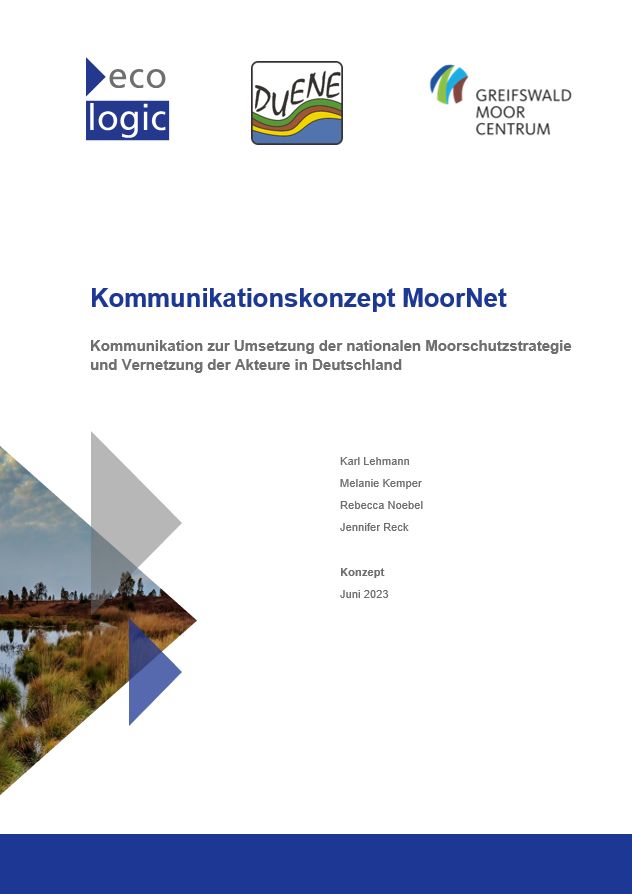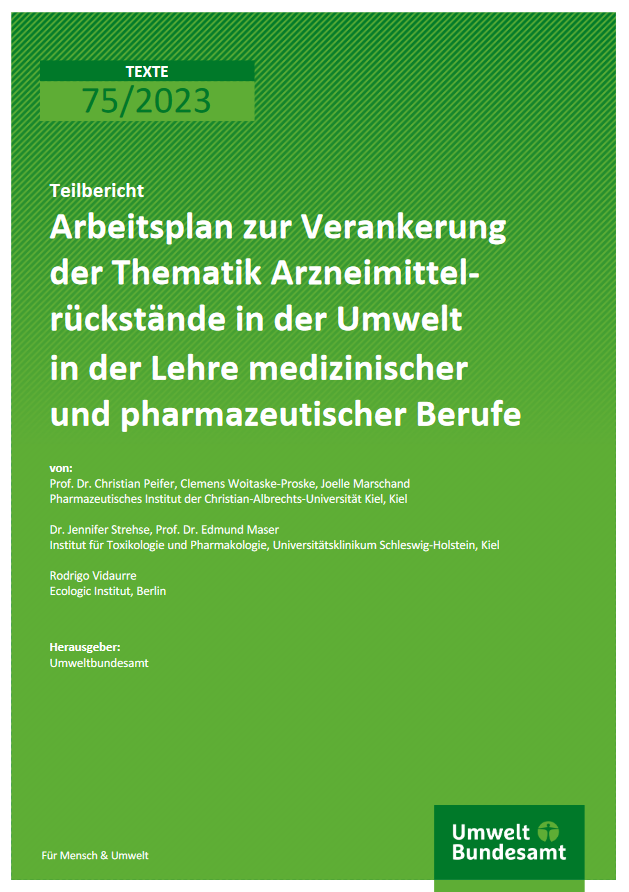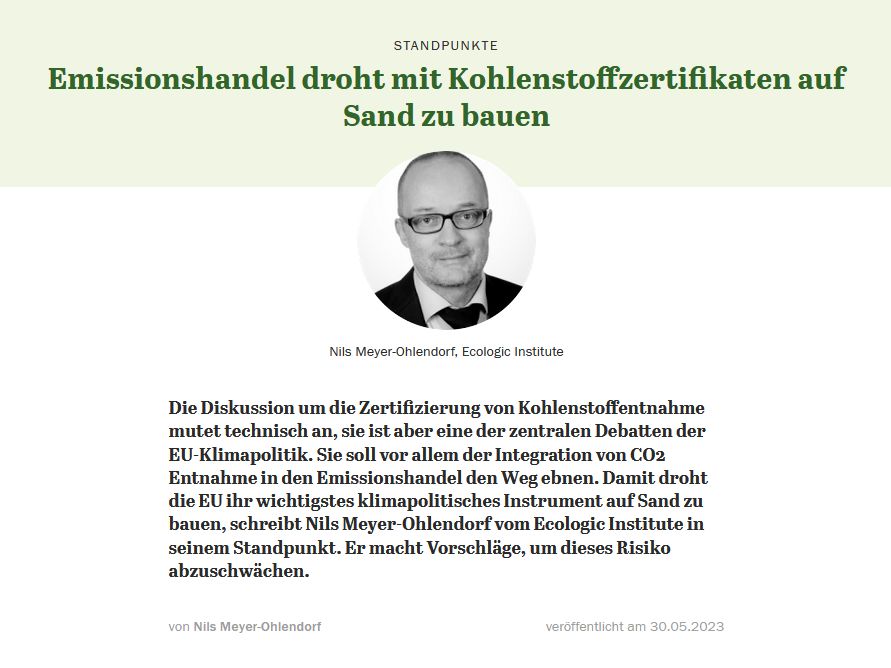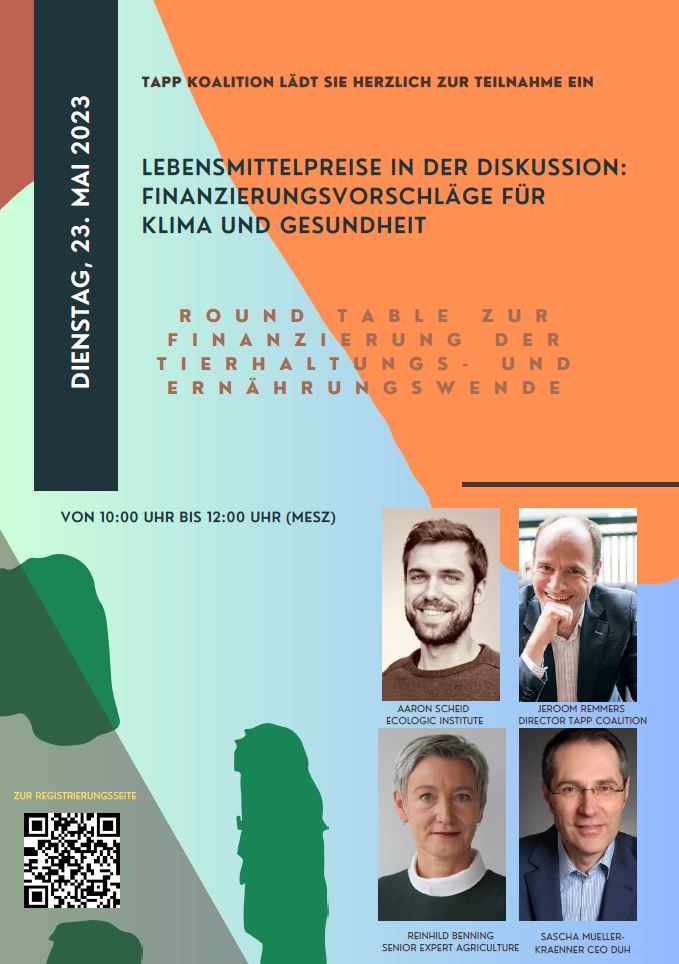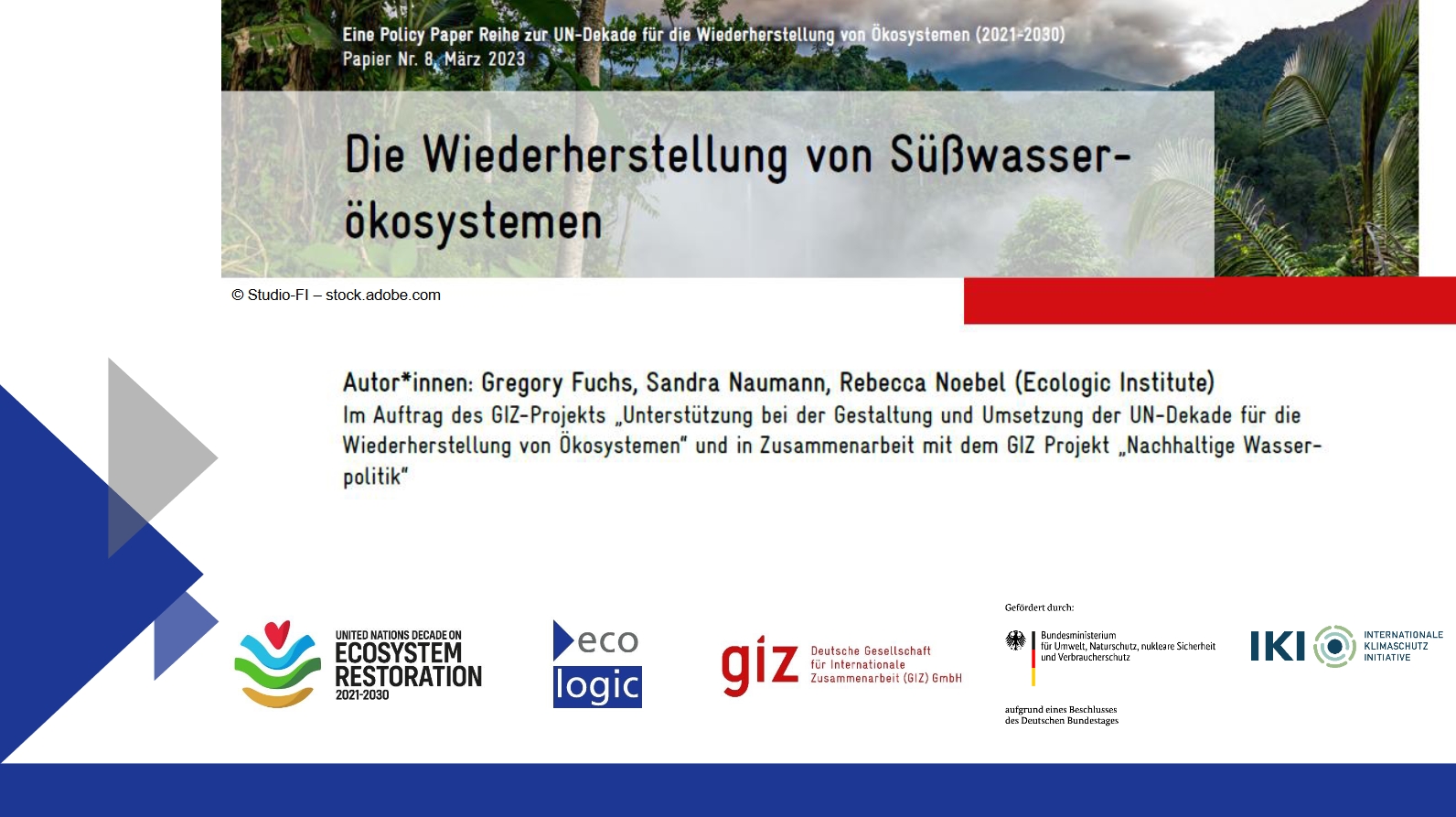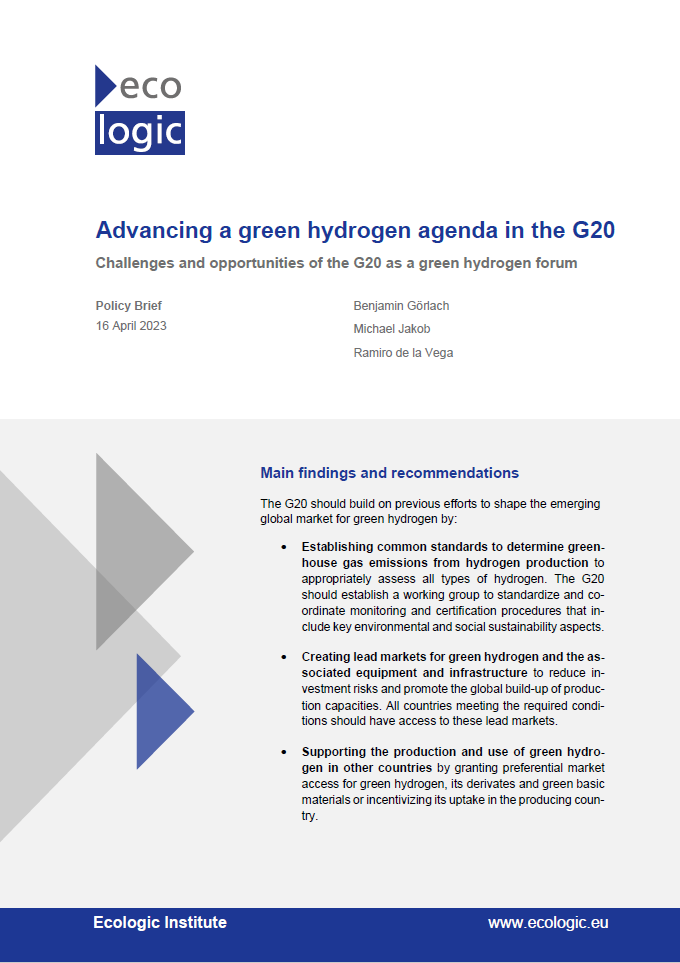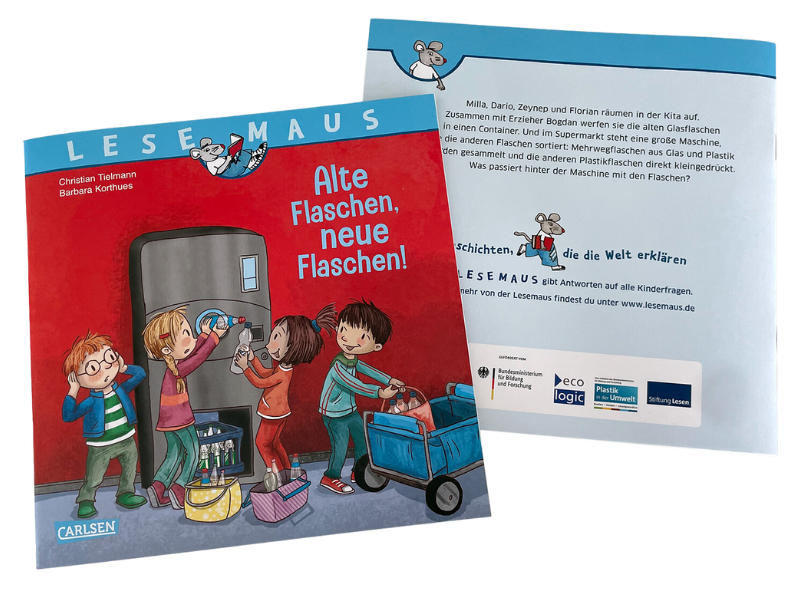Event:Digital Event
Event:Digital Event
Promoting Repair through Networks and Repair Bonuses – Re-Use Berlin
Online expert dialogue
online
Publication:Document
Kommunikationskonzept MoorNet
Kommunikation zur Umsetzung der nationalen Moorschutzstrategie und Vernetzung der Akteure in Deutschland
Year
Read morePublication:Flyer
Publication:Report
Publication:Article
Emissionshandel droht mit Kohlenstoffzertifikaten auf Sand zu bauen
Article in the Tagesspiegel
Year
Read morePresentation:Panel discussion
Presentation:Speech
Presentation:Speech
Event:Digital Event
Models for the Generation and Use of PV Electricity for Multi-party Buildings
Hybrid Expert Workshop
Berlin,
Germany
Publication:Policy Brief
Advancing a Green Hydrogen Agenda in the G20
Challenges and opportunities of the G20 as a green hydrogen forum
Year
Read morePublication:Book
Publication:Article
Presentation:Panel discussion
Event:Workshop
Steps for the Transformation to a Sustainable Food System
Recommendations for action of the STErn project
Berlin,
Germany
